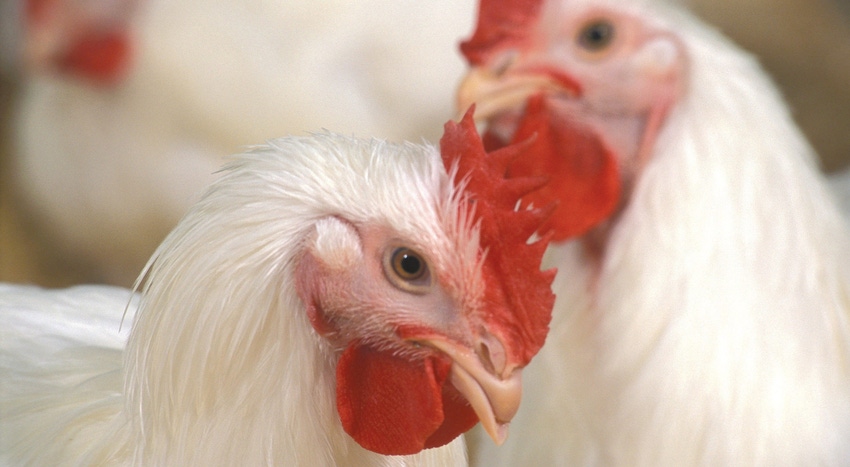April 18, 2022

Idaho became the latest Western state to confirm the presence of highly pathogenic avian influenza is domestic flocks, as the state Department of Agriculture on April 15 reported multiple cases in two separate flocks of domestic chickens in Gooding and Caribou counties. The affected flocks appear to be unrelated.
HPAI is a viral disease and requires rapid response because it is highly contagious and often fatal to chickens. The Idaho State Department of Agriculture will work with the U.S. Department of Agriculture to respond to cases.
HPAI is carried by waterfowl (geese and ducks) along their migratory path. Idaho is within the Pacific Flyway. Domestic birds and poultry are very susceptible to morbidity and mortality once infected. HPAI is transmitted between birds through close contact (mucous), fecal matter, and sometimes as an aerosol. It is often carried on objects such as tools, vehicles, clothes, and boots, which can transfer the virus from one location to another.
Related: Avian flu is spreading in the West
Signs of HPAI in domestic poultry frequently include decreased appetite and activity, respiratory difficulty, dark combs and wattles, and unexplained mortality.
Authorities in Wyomiing and Colorado announced in late March they'd confirmed HPAI in wild snow and Ross's geese and in several mixed non-commercial flocks. Montana reported in early April that HPAI had been found in two flocks there.
In March, a dead bird found in British Columbia was confirmed to have been infected with the European strain H5N1, raising suspicions that the disease may be present in the Pacific Flyway.
CSU offers advice
With the discovery of avian influenza in Colorado flocks of birds, Colorado State University is offering guidance for flock owners to defend against the disease.
Avian influenza is caused by an influenza type A virus, which can infect all birds, including poultry (such as chickens, turkeys, pheasants, guinea fowl and quail) and domestic and wild waterfowl. Highly pathogenic avian influenza (HPAI) virus strains are extremely infectious, often fatal to chickens and turkeys, and can spread rapidly from flock-to-flock.
Related: HPAI confirmed in Pacific Flyway region; West on alert
With the recent detections (since February 2022) of the Eurasian H5 strain of highly pathogenic avian influenza in wild birds and domestic poultry in the United States, bird owners should review their biosecurity practices and stay vigilant to protect poultry and pet birds from this disease.
HPAI has a very high mortality rate, and birds infected with this virus typically do not survive. Vaccines for HPAI are not readily available.
Restrictions in Colorado
After the U.S. Department of Agriculture confirmed detection of HPAI in wild birds in Sedgwick County, the Colorado Agricultural Commission approved an emergency rule suspending all poultry shows, including meets, sales, swaps, and competitions, beginning March 30 and lasting 90 days.
In 2022, avian influenza has been detected in wild bird species across 31 states. Additionally, there have been detections in backyard and commercial poultry premises impacting more than 45 million poultry and birds (detections as of April 4, 2022). The USDA tracks all HPAI cases on its website.
“Commingling of birds presents a high risk of disease introduction and transmission, and the Department of Agriculture is temporarily suspending all poultry events in our state to help minimize the possibility of highly pathogenic avian influenza affecting backyard and commercial poultry,” said Colorado State Veterinarian Dr. Maggie Baldwin in a press release announcing the emergency rule.
Related: HPAI found in two Montana flocks
“Colorado poultry owners should immediately increase their biosecurity protocols to protect their flocks, including limiting exposure of domestic birds to wild birds and other poultry flocks and limiting introduction of new birds into flocks.”
Signs of avian influenza
Extreme depression
Difficulty breathing
Decrease in feed or water intake
Swelling or purple discoloration of head, eyelids, comb, wattle, and hocks
Decrease in egg production
Sudden unexplained death
How is avian influenza transmitted?
Foot traffic
Secretions from the bird
Contact with infected droppings
Movement of sick birds
Contaminated clothing and equipment
Protecting small flocks from avian influenza
The United States Department of Agriculture’s Animal and Plant Health Inspection Service has expanded its Defend the Flock program to educate all poultry growers about best practices in biosecurity. Please visit the site for more information on how to protect your flock and for the latest information on HPAI in the U.S.
Call your veterinarian if your flock shows signs of influenza or you suspect exposure.
No vet? You can also call:
CSU Avian Health Hotline: 970-297-4008
Colorado State Veterinarian Office: 303-869-9130
USDA Bird Hotline: 1-866-536-7593
Bird owners seeking more resources, like biosecurity plans, signage and webinars, can visit the Defend the Flock website from the USDA’s Animal and Plant Health Inspection Service or visit PoultryBiosecurity.org.
A recording of an April 6 HPAI webinar for backyard flock owners is available on YouTube.
In addition, the Colorado Department of Agriculture has created a situational report webpage with a map of counties with infected wild or domestic birds.
Source: Idaho State Department of Agriculture, Colorado State University, which is solely responsible for the information provided and is wholly owned by the source. Informa Business Media and all its subsidiaries are not responsible for any of the content contained in this information asset.
About the Author(s)
You May Also Like




